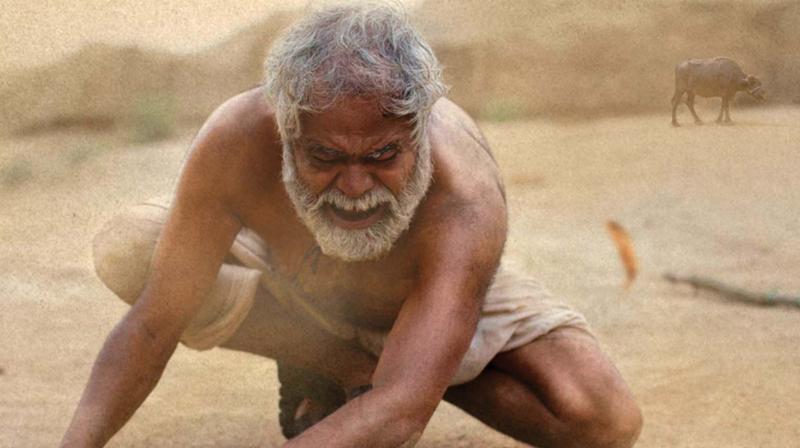Blowing the wind of change

Nila Madhab Panda had quietly come to Thiruvanantha-puram and just as quietly left, after bringing his film Kadvi Hawa (Dark Wind) to the 22nd International Film Festival of Kerala.
The film looks at the topic of climate change through the effects it brings to a family. Another critical issue people all over are going through, but not being concerned about enough. Nila’s films have been touching issues for a long time now, Jalpari on female foeticide, Babloo Happy Hai on AIDS awareness, Kaun Kitne Paani Main on water crisis and now, climate change. But then, he is perhaps most known for his 2011 film I am Kalam that won his child actor Harsh Mayar the national award.
“For my next film, I will go back to children,” he says, referring to I am Kalam, the poor boy who is inspired by the former president, late A.P.J. Abdul Kalam. “The new one – called Halka – is a musical. Where do we see children in this country? We are quite a selfish generation. The film asks a basic question on what a child wants. What are his questions? How important is it for you to listen to his questions?”
He didn’t originally want to be a filmmaker. It is when he realised that films were the best way to communicate about issues that matter, that he chose to do so. “I come from a very humble background. I didn’t know what filmmaking is. But I realised cinema is a much bigger way of communication in this country to tell stories,” he says.
He also realised feature films could tell it better than documentaries. Nila had made a documentary on climate change in 2006. “Since I come from Orissa, I have seen climate change very closely. I have literally seen cyclones hitting village after village. In 20 years, five villages have gone into the sea because of the sea level rising due to climate change. That is when I realised we must make more than documentaries, we must make a (feature) film to get people to open their eyes — that climate change is here and it is happening to us, in Mumbai, Orissa everywhere. What’s happening in Chambal is repeated in California. Look at the cyclones happening in America,” Nila says.
In Dark Wind, he chose to tell his story through a poor family affected by climate change, a man worried if his son – a farmer – would also commit suicide like the many others because of receding rains and the crops going barren. “My way of looking at it is to observe the people it has affected the most. People who have made zero contribution to climate change. A farmer doesn’t produce any greenhouse gas. But today, he is suffering the most. I wanted to tell the story of the victim who is not even contributing anything to climate change,” Nila says.
He picks up issues for his films for he believes they are part of the society we live in. “I feel since it is part of society, I am a little more aggressive to bring out more contemporary issues into my film. A reflection of the society, with effects on our everyday lives. And I witness these issues myself when I travel for my documentaries. So it is much easier for me to understand what people go through, their emotions.” He also believes telling the issues through films will have some kind of result. “I have seen people talk about it. The idea of films is to at least start a dialogue.”
As a man who has been observing all the critical issues the country has been going through, Nila thinks when we are a developing nation we tend to think of our development more and at times put the important issues behind us, under the carpet. “The times we are going through… where the country is going. We don’t seem to care about the effect. Every development has a side-effect. If you make a road you have to cut hundreds of trees. If you make an industry it will create pollution. If you have a water supply, you are drying out the river. But you must find how to regenerate all that. Do we care if we cut so many trees or if we are planting them somewhere else? This country is going through some difficult times where you need to have certain consciousness. Cinema has a much bigger job to do to bring that consciousness into people’s minds.”

